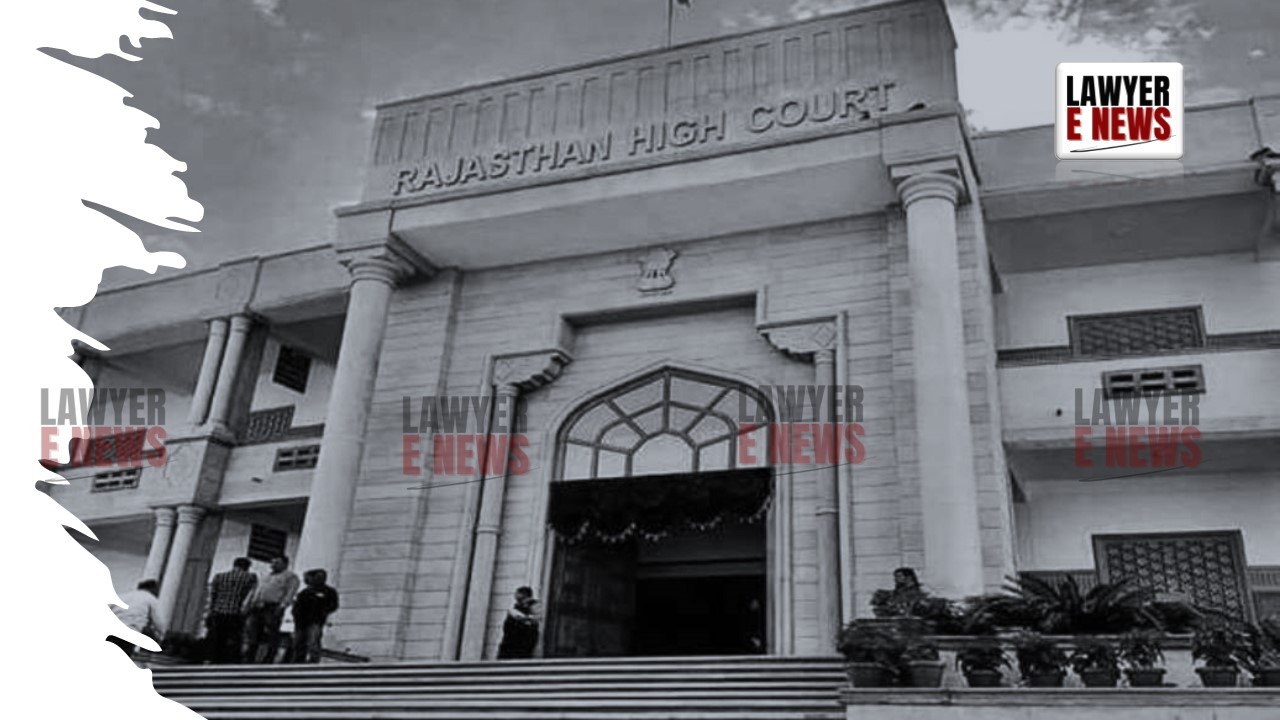-
by Admin
15 February 2026 5:35 AM



Rajasthan High Court in Universal Sompo General Insurance Co. Ltd. v. Pushpa Kanwar & Ors. addressed crucial legal issues surrounding compensation under the Motor Vehicles Act. The appeal was brought by the insurance company against an award of ₹5,00,000 by the Motor Accident Claims Tribunal (MACT), Bikaner, granted under Section 163-A of the Motor Vehicles Act, 1988. The appellant contested the award, primarily on the grounds of the misapplication of Section 164 of the amended Motor Vehicles Act of 2019.
The case arose from an accident involving Prem Singh, who was driving the insured vehicle and was found negligent in the police investigation. Prem Singh passed away in the accident, and his family members, the respondents, filed a claim under Section 163-A of the Act, seeking compensation.
The Tribunal, however, adjudicated the case under the amended Section 164 of the Motor Vehicles Act, which came into effect on April 1, 2022, and awarded the family ₹5,00,000 with 9% interest. The insurance company argued that Section 164 could not apply to an accident that took place in June 2021, before the amendment came into force.
Application of Section 164 Instead of Section 163-A: The appellant contended that the Tribunal erred by applying Section 164, which was introduced by the Motor Vehicles (Amendment) Act, 2019. This provision came into effect on April 1, 2022, whereas the accident occurred in June 2021. They argued that the award should have been based on the pre-existing Section 163-A.
Negligence of the Deceased: The appellant also argued that since Prem Singh was driving the vehicle and was found negligent, he could not be considered a "victim" under Section 163-A, which presupposes compensation for the victim and not the tortfeasor (the person responsible for the accident).
Non-Applicability of Section 164: The Court agreed with the appellant that Section 164 could not apply retroactively. However, the Court noted that the compensation amount under both Section 163-A (as it existed) and the newly introduced Section 164 is identical—₹5,00,000 in the case of death. Therefore, even if the Tribunal erred in applying Section 164, it did not affect the final award amount.
Negligence Defence Under Section 163-A: Referring to the Supreme Court judgments in United India Insurance Co. Ltd. v. Sunil Kumar and Shivaji & Anr. v. Divisional Manager, United India Insurance Co., the Court reiterated that in proceedings under Section 163-A, the insurer cannot raise a defence based on the victim's negligence. This principle was crucial in rejecting the insurance company’s argument regarding Prem Singh’s negligence.
The Court affirmed that the legislative intent behind Section 163-A is to provide swift compensation without the need to prove fault or negligence. Allowing a negligence defence would defeat the purpose of this provision, which aims to ensure compensation on a no-fault basis.
While the Court set aside the Tribunal’s finding that Section 164 governed the case, it held that this error had no impact on the compensation awarded. The High Court modified the order, declaring that the award should be deemed to have been made under Section 163-A of the Motor Vehicles Act, as it existed at the time of the accident.
The appeal was disposed of, and the insurance company was directed to pay the compensation amount without further delay.
This judgment reinforces the principle that claims under Section 163-A are immune from negligence defences and provides clarity on the retrospective application of the Motor Vehicles (Amendment) Act, 2019. It highlights the judiciary’s role in protecting the rights of accident victims by ensuring that procedural errors do not unduly harm their compensation claims.
Date of Decision: October 7, 2024
Universal Sompo General Insurance Co. Ltd. v. Pushpa Kanwar & Ors..
